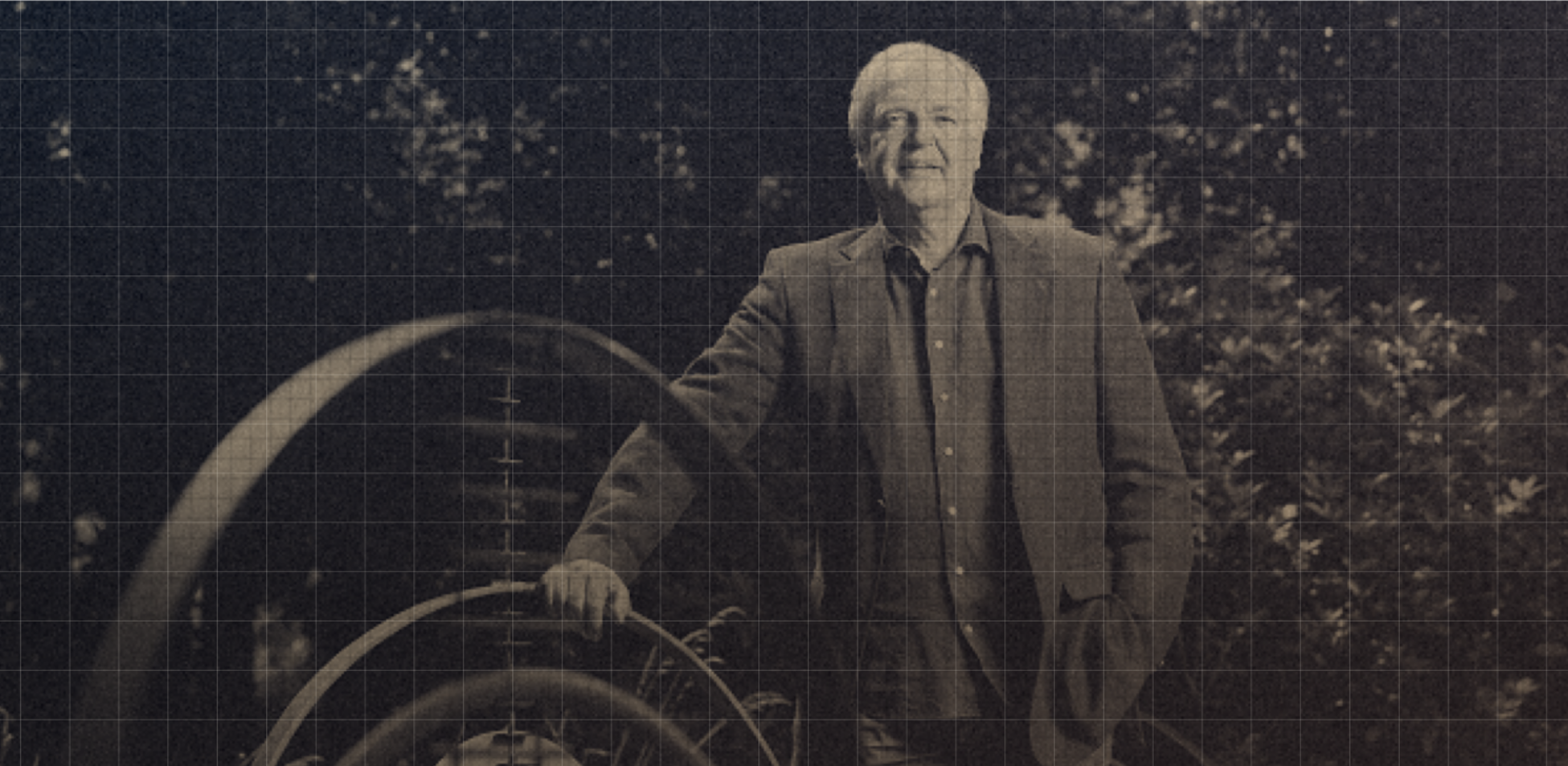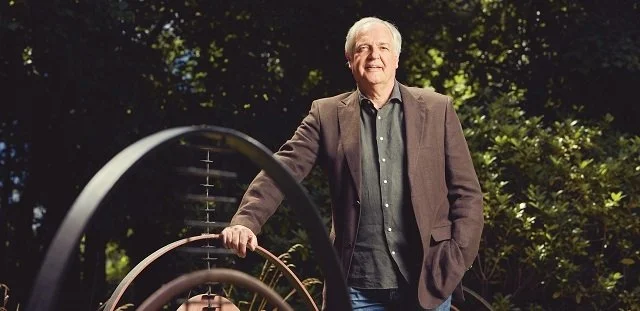
Case Study Three
Paul Polman’s IMAGINE Capstone
Purpose beyond profit
“You are a real leader if you are bringing humanity back to business.”
What Makes Polman’s Capstone Distinct
Some Capstones begin with a question. Paul Polman’s was: Can a company grow only by serving society and the planet?
Polman spent a decade as CEO of Unilever, one of the world’s largest multinational consumer goods companies. He is the epitome of a leader who thinks in terms of purpose above profit (the first of our seven defining characteristics of Capstones in Chapter 2 of the book) and the Benefit Mindset (as detailed in Chapter 3).
At the age of 62, Paul stepped down from the helm of the PLC to begin a new phase and purpose in his life. He wanted to take what he had learned to influence world-leading CEOs and policymakers. He wanted companies and leaders to move from ‘I’ to ‘We’.
His Capstone, called IMAGINE, helps make brave leaders even braver. His formula is to gather cohorts of CEOs to form powerful collectives to bring about change. Building industry-wide coalitions helps deliver change at speed and scale.
His mission is to prove that the most successful companies are net positive. Net Positive means you thrive by giving more to the world than you take, that you can profit by helping fix the world’s problems, including runaway climate change, rampant inequality, and diminishing biodiversity, rather than by creating them.
Paul’s rallying cry is simple: be bold and don’t waste time on things you don’t believe in.
Image: David Yeo
~ Widening Responsibility from Shareholders to Stakeholders ~
In 1970, Milton Friedman introduced his shareholder theory in an essay for The New York Times. In it, he argued that a company has no “social responsibility” to the public or society; its only responsibility was to its shareholders.
Shareholder primacy thinking is now widely seen as unacceptable. We are accepting that the sole pursuit of profit at the expense of everything else is no longer desirable. A company's role should be to empower everyone to flourish and be a good corporate citizen.
As Greentech billionaire Stephen Fitzpatrick says in a later case study: Good for the world is good for business.
According to Polman:
“The single-minded pursuit of profit will not bring you long-term prosperity. We can’t take shortcuts on sustainability and the responsibility of our environment.”

A look at the three phases of Paul’s career
CORNERSTONE
~ An Instinct to Help Others ~
Paul was born in 1956 and grew up in his birthplace, the Dutch city of Enschede. At school, he wanted to be a priest: “Helping others was appealing to me,” he told The New York Times. That instinct, to serve something larger than himself, never left.
He went on to study economics at the University of Groningen, before crossing the Atlantic to pursue an MA and MBA at the University of Cincinnati.
After graduating, Paul went to work for Procter & Gamble (P&G), starting as a cost analyst. It was the beginning of a 37-year journey working within multinational consumer goods conglomerates.
“P&G taught me the importance of companies that take the long view, to make long-term business models,” he says. “Companies have to be built to last, not built to sell.”
The seeds of Capstone thinking were already being sown. Even then, Paul was questioning what business was really for.
KEYSTONE
~ Business as a Force for Good ~
Paul’s ascent through the ranks at P&G was steady but significant, culminating in his role as Group President for Europe by 2001.
In 2006, Nestlé came calling. He joined as CFO and Head of the Americas, but it was a short and ultimately unsatisfying stint. The fit didn’t match the mission.
Then came the defining opportunity.
In 2008, Paul Polman was appointed CEO of Unilever, the first outsider to lead the company in nearly 80 years. It was a bold appointment at a bold time. But Paul didn’t just accept the role, he redefined it.
From day one, he began shifting Unilever from shareholder-first thinking to stakeholder-first action, embedding the UN’s Sustainable Development Goals into the company’s DNA. He rolled out a new compensation model, championed a sustainable living plan, and placed environmental and social sustainability at the heart of every business decision.
In 2010, Unilever launched the Sustainable Living Plan, a blueprint for sustainable growth that responds to the challenges and opportunities of an increasingly resource-constrained and unequal world. Paul was introducing a new way of doing business, one that delivers growth by serving society and the planet:
“We can’t take shortcuts on sustainability or our responsibility to the environment. The single-minded pursuit of profit will not bring you long-term prosperity.”
Under Paul, Unilever coordinated the development of a business manifesto endorsed by more than twenty leading international companies. It laid out a vision for strengthening the ability of businesses to help achieve the SDGs substantially. This was the beginning of Paul’s desire to influence other business leaders and CEOs.
In 2017, that philosophy was put to the test. Kraft Heinz made a $115bn bid to acquire Unilever. Paul fought it off.
“Unilever was a company that works for the long term and focuses on the billions of people that we served. Kraft Heinz was clearly focused on a few billionaires who do extremely well, but the company is on the bottom of the human rights indexes or on the efforts to get out of deforestation. Kraft Heinz was built on the concept of cutting cost.”
This keystone phase was not just about profitability. It was about proving that business could be reimagined, that a company could grow by being net positive: giving more to the world than it takes.
“Any system where too many feel they are not participating or are left behind will ultimately rebel against itself.”
The seeds sown in his Cornerstone, long-termism, moral leadership, and care for the collective, had now been fully activated. It was time for Paul to start his Capstone.

CAPSTONE
~ IMAGINE a Better System ~
In 2019, Paul Polman stepped down as CEO of Unilever. But he wasn’t retiring, he was repurposing. His next chapter wasn’t about building another business. It was about reimagining the entire system.
He launched IMAGINE, a for-benefit foundation designed to accelerate business leadership in the service of humanity.
The mission? To shift how we make, take, and consume. To reframe capitalism as a tool for collective flourishing, not individual accumulation.
Paul was joined by long-time collaborators Valerie Keller, Jeff Seabright, and Kees Kruythoff, allies from his Unilever journey and fellow believers in purpose-driven enterprise. Together, they built a platform to convene the world’s most powerful CEOs, not to compete, but to collaborate.
At the heart of IMAGINE is a bold insight: in today’s world, multinational corporations often rival nation-states in power. With that power comes a new kind of duty to lead, to act, and to help steer humanity back from ecological and social collapse.
This is leadership beyond the P&L, leadership that includes suppliers, ecosystems, industry bodies, governments, and civil society. It’s a new model of stewardship, built on shared goals and moral courage.
“We used to play the game for ourselves. First, just to win. Then to win by playing our best. Now, it’s about playing the game for others — not just ourselves.”
In 2021 he co-wrote the book with sustainable expert Anrew Winston “Net Positive: how courageous companies thrive by giving more than they take”, to help support a mindset shift in business. He wanted to outline and reimagine what good looks like.
Paul’s Capstone is about coalition-building: creating CEO cohorts that can move whole industries forward. Not slowly. But together, at speed and scale.
“This is not the time for business as usual,” he says. “It’s time for business unusual. The tracks are heading in the wrong direction, and we all know it. We’re heading straight for an oncoming train. We don’t want to go back. We need to change systems. We need to rethink.”
IMAGINE isn’t just a name, it’s a provocation. A call to reimagine what business is for. To move from ego to ecosystem. From extraction to regeneration. From shareholder primacy to shared prosperity.
Polman’s Capstone shows us what happens when purpose becomes policy — and when leadership means putting your influence to work for the benefit of others.
CAPSTONE LEARNINGS
1. Bold Leadership Means Brave Conversations
Paul’s Capstone reminds us that leadership today is about seizing the opportunity to have new and difficult conversations, taking bold decisions, working collaboratively, and embracing responsibility at scale.
We spoke to Paul during the 2020 COVID pandemic. According to him:
“The pause during lockdown accelerated the understanding that we are all in this together. That we are all interdependent. That we are global citizens.”
For Paul, the moral bar in business is rising. Awareness is no longer enough, it’s time for action. And action only works when it’s collective.
2. The Power of Coalitions
IMAGINE is built on the belief that we move faster together. Its work on The Fashion Pact is a perfect example: uniting 30% of the global fashion industry’s CEOs around shared commitments to human rights, climate action, and ocean biodiversity.
Rather than working in silos, IMAGINE’s strategy is to put the full C-suite “in the room”, then bring in ecosystem partners and provocateurs to catalyse transformation. This is leadership as convening power: creating moral momentum across sectors.
SUMMARY
Somewhere along the way, many individuals and businesses forgot the meaning of we. Yet it is hard to be considered a success if you are within a failing society.
Paul Polman’s Capstone is a reminder to be net positive: give more to the world than you take.
With a mass of challenges facing the world, we should quickly accept that many problems can’t be solved in isolation. Those who can should stand up, take responsibility as societal leaders, and weave collaboration into every project.

